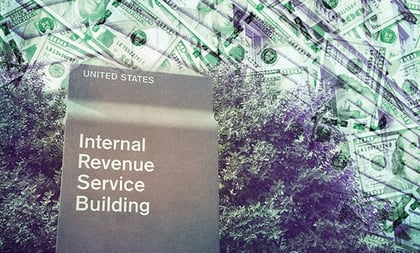The IRS has issued guidance for businesses that choose to give employees a temporary holiday from their share of the Social Security payroll tax.
Under a presidential executive order issued Aug. 8, employers can defer that 6.2% tax for employees whose taxable wages are less than $4,000 during a bi-weekly pay period — equivalent to roughly $104,000 annually — from Sept. 1 through Dec. 31.
The tax, however, must be repaid next year before May 1 or interest, penalties, and additional taxes will begin to accrue, according to the IRS. The guidance notes that employers can choose to repay the deferred taxes or collect them from employees.
Financial advisory firms and their employer clients, like all other employers with W-2 employees, can choose to participate in this tax deferral.
The Chamber of Commerce and 32 other trade associations had initially opposed the tax deferment on the grounds that it created “a substantial tax liability for employees at the end of the deferral period.” In an Aug. 18 letter sent to House Speaker Nancy Pelosi, D-Calif.; Senate Majority Leader Mitch McConnell, R-Ky.; and Treasury Secretary Steven Mnuchin, the trade groups asked that Congress take action to forgive this liability. Otherwise, they said, the members of their organizations would “likely decline to implement deferral.”
The IRS apparently responded to the criticism of those groups and others by allowing employers to foot the deferred tax bill themselves, but that solution is also likely to cause many employers to forgo the program.
Daniel Morris, a managing director at the Morris + D’Angelo accounting firm, “strongly recommends that employers don’t walk, but run, from this poorly designed program.”
The new IRS guidance “indicates the employer is ultimately liable for paying the deferred tax” even though the employer may collect the tax from employees, according to Morris, whose firm has offices in San Jose, California; Los Angeles; and Portland, Ore. “If the employee quits working before the deferred tax is paid, the employer may be responsible for paying the employee’s deferred payroll tax.”
“Failure to pay payroll taxes timely is a major cause of penalties for small employers,” says Claudia Hill, president of Taxmam, which provides tax assistance to individuals, businesses, estates and trusts.









 August 31, 2020 at 09:05 AM
August 31, 2020 at 09:05 AM










